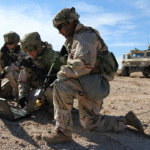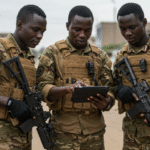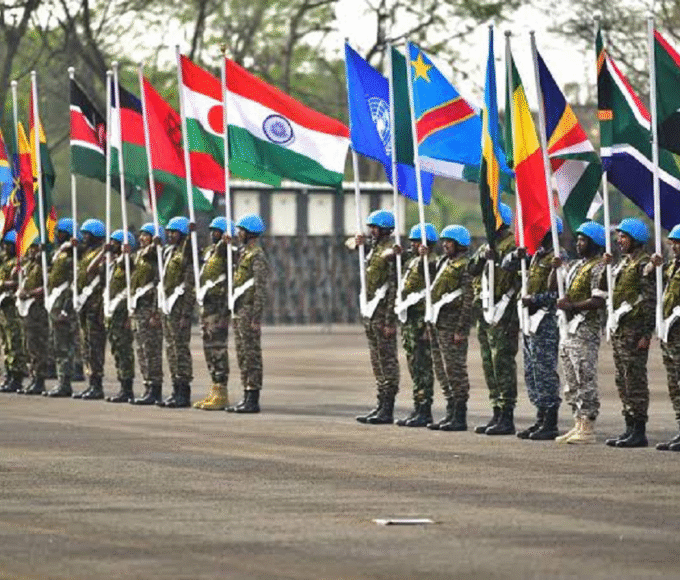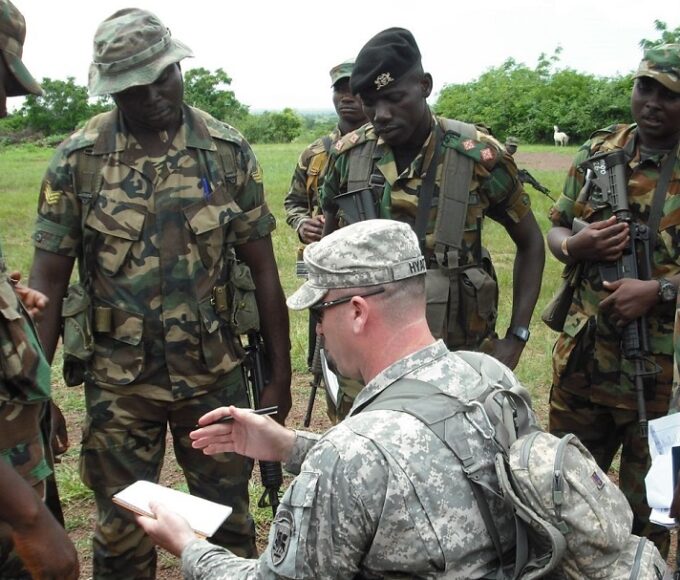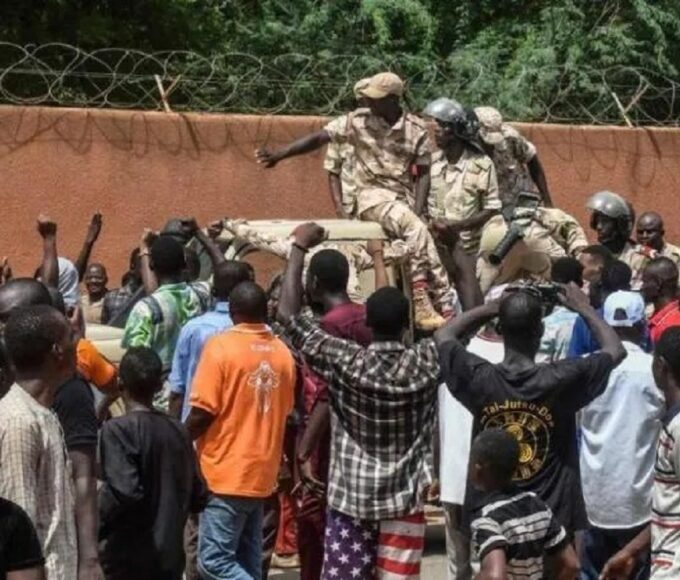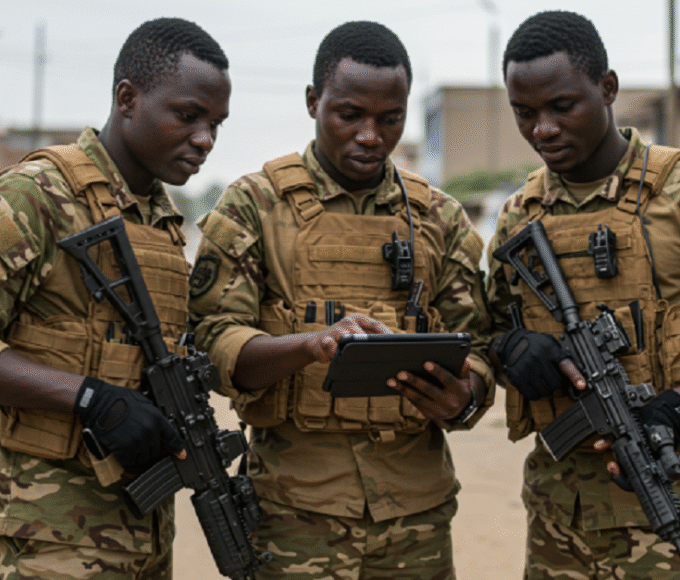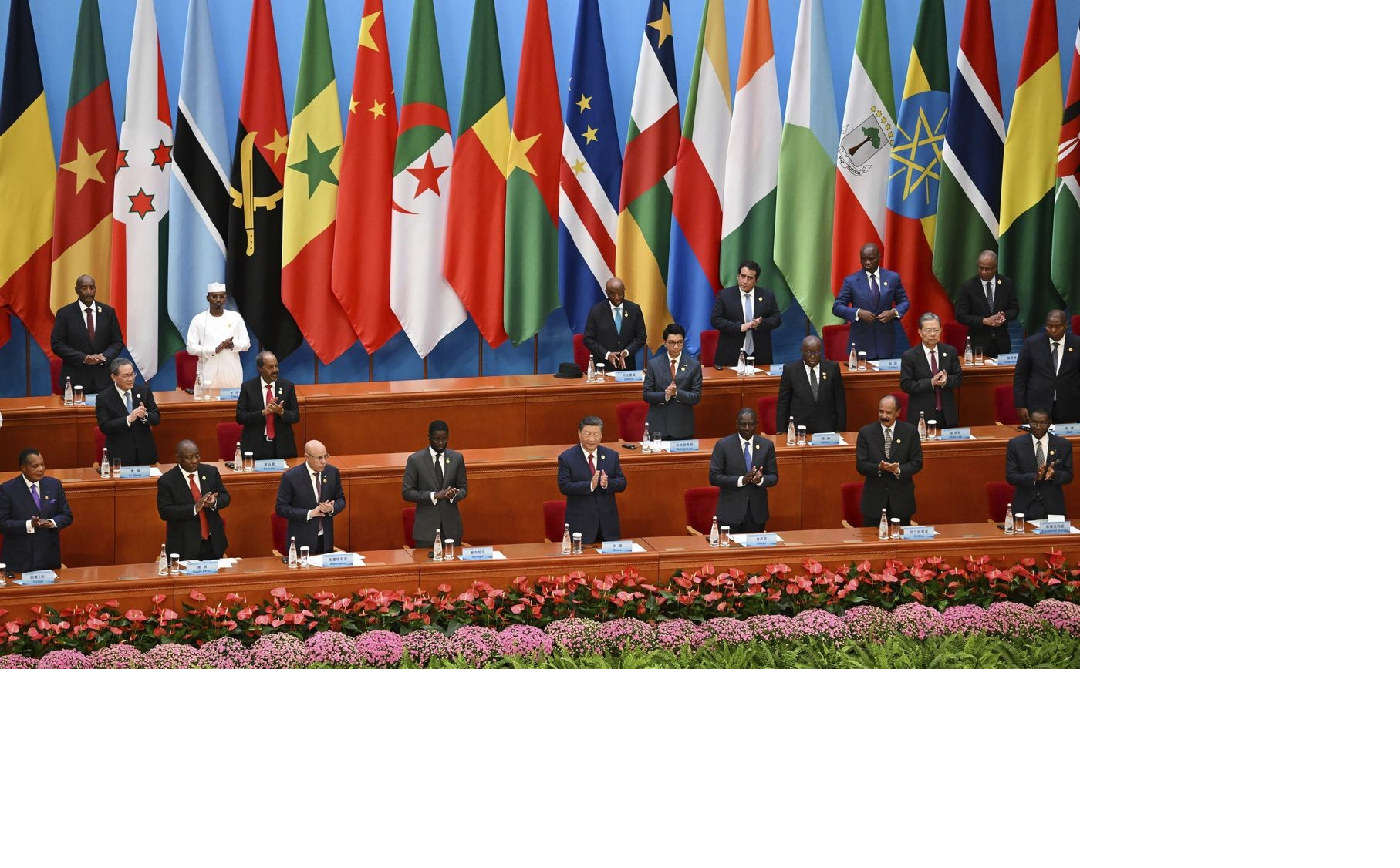
CHINA’S EXPANDING MILITARY FOOTPRINT IN AFRICA: A NEW ERA OF GLOBAL COMPETITION
China’s military presence in Africa is no longer a side note to its economic ambitions it is becoming a central feature of global security. In Djibouti, the People’s Liberation Army (PLA) operates its first overseas base, built to support anti-piracy missions but now expanded into a hub for broader operations. Across the continent, China funds dual-use infrastructure, conducts joint exercises, and supplies arms. These moves serve the Belt and Road Initiative (BRI), helping protect more than a million Chinese nationals, hundreds of billions in investments, and critical trade routes. But they also raise alarms: Africa is turning into a stage for great-power rivalry, where sovereignty, security, and influence are at stake.
China’s involvement in Africa’s security landscape has deep roots. In the 1950s, Beijing supported anti-colonial struggles with arms and political backing. After the Cold War, it shifted to diplomacy, founding the Forum on China-Africa Cooperation (FOCAC) in 2000. Over time, FOCAC expanded from economic aid to include security pledges. The turning point came in 2017, when China opened its Djibouti base. Initially described as a logistics hub, it soon grew into a forward outpost for regional operations. The 2011 evacuation of 35,000 Chinese citizens from Libya had already shown Beijing the value of overseas military reach.
Related Article: WHY IT MATTERS FOR AFRICA
By 2025, the Djibouti base hosts up to 2,000 PLA personnel. It includes a pier large enough for aircraft carriers, housing for marines, and advanced surveillance facilities. Chinese forces train with local troops, run counterterrorism drills, and rotate through UN peacekeeping missions. The base also supports patrols in the Gulf of Aden. Its location next to the U.S. Camp Lemonnier highlights the competitive edge of the Horn of Africa, where multiple foreign powers jostle for influence. Recent upgrades suggest Beijing intends to stay for the long term.
Rumours of new Chinese bases continue to circulate. Reports from 2024 and 2025 describe talks with Equatorial Guinea and Gabon about facilities in the Gulf of Guinea. Such bases would allow China to project naval power into the Atlantic. While none have been confirmed, China’s investments in ports in Namibia and Angola could provide ready-made options. These projects often mix civilian and military functions, reflecting China’s policy of “civil-military fusion.” U.S. officials view these moves with alarm, warning they could threaten Western trade and naval operations.
China’s security outreach extends far beyond bases. Training programs, arms sales, and joint drills strengthen ties with African militaries. In 2024, over 1,000 Chinese troops joined “Peace Unity” exercises in Tanzania and Mozambique. Beijing has also pledged $100 million in military aid through FOCAC to bolster African peacekeeping and counterterrorism forces. Drone and fighter jet sales to Nigeria and Ethiopia highlight China’s growing role as an arms supplier. For the PLA, these engagements provide valuable practice in diverse terrains, sharpening its expeditionary skills.
Economics drive much of this expansion. By 2025, China has poured more than $200 billion into African projects, including the construction or financing of 78 ports. Facilities like Algeria’s El-Hamdania mega port are nominally commercial but could support military logistics if needed. Protecting these investments from piracy, terrorism, or instability gives Beijing a rationale for military deployments. Debt obligations also create leverage: host nations often grant access rights in exchange for Chinese financing.
This strategy carries major geopolitical implications. U.S. influence in Africa has weakened, illustrated by setbacks such as the 2023 military coup in Niger, which disrupted American basing rights. European powers, though wary of foreign bases, struggle to match China’s pace. Meanwhile, Beijing’s “non-interference” approach appeals to many African leaders, particularly authoritarian regimes, who prefer it over Western demands for governance reforms. The result is a continent caught between competing powers, where alliances, security structures, and even trade routes are being reshaped.
China shows no sign of slowing down. The most recent FOCAC plans call for deeper police and military cooperation. Negotiations for new bases in West Africa could reshape Atlantic security, challenging U.S. and European dominance. For Africa, the picture is mixed. Chinese training and infrastructure can strengthen security, yet debt burdens and sovereignty concerns remain. For the wider world, Africa’s role as a testing ground for China’s global ambitions underscores the continent’s growing centrality in a multipolar order.
China’s rise in Africa is not only about ports, bases, or military drills. It signals a shift in how global power is projected. The continent’s security is now intertwined with the ambitions of a rising China and the responses of a wary West. What happens in Africa will ripple far beyond its shores.
King Richard Igimoh, Group Editor ALO
King Richard Igimoh, Group Editor African Leadership Organisation is an award-winning journalist, editor, and publisher with over two decades of expertise in political, defence, and international affairs reporting. As Group Editor of the African Leadership Organisation—publishers of African Leadership Magazine, African Defence & Security Magazine, and Africa Projects Magazine—he delivers incisive coverage that amplifies Africa’s voice in global security, policy, and leadership discourse. He provides frontline editorial coverage of high-profile international events, including the ALM Persons of the Year, the African Summit, and the African Business and Leadership Awards (ABLA) in London, as well as the International Forum for African and Caribbean Leadership (IFAL) in New York City during the United Nations General Assembly.
Recent Posts
Categories
- Air & Aerospace16
- Border Security15
- Civil Security4
- Civil Wars4
- Crisis5
- Cyber Security8
- Defense18
- Diplomacy19
- Entrepreneurship1
- Events5
- Global Security Watch6
- Industry8
- Land & Army8
- Leadership & Training5
- Military Aviation5
- Military History27
- Military Speeches1
- More1
- Naval & Maritime9
- Resources2
- Security12
- Special Forces1
- Systems And Technology9
- Tech6
- Uncategorized3
- UNSC1
- Veterans6
- Women in Defence9
Related Articles
INDIA’S GROWING MILITARY PARTNERSHIPS WITH AFRICA
India’s engagement with Africa is undergoing a quiet but powerful transformation. What...
ByKing Richard Igimoh, Group Editor ALOOctober 14, 2025EVOLVING HORIZONS: TRAINING THE AFRICAN SOLDIER IN A CHANGING LANDSCAPE
The training of African soldiers has undergone a profound transformation in recent...
ByKing Richard Igimoh, Group Editor ALOOctober 2, 2025COLD WAR AFRICA: PROXY WARS AND THEIR IMPACT
The Cold War in Africa, spanning from the late 1940s to the...
ByKing Richard Igimoh, Group Editor ALOSeptember 26, 2025AI AND AFRICA’S MILITARY INTELLIGENCE: PROMISE AND PERIL IN A TRANSFORMING SECURITY LANDSCAPE
Africa’s military landscape is entering a new chapter, shaped by the rapid...
ByKing Richard Igimoh, Group Editor ALOSeptember 22, 2025


